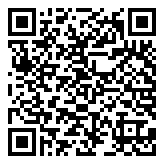

What is research design? In today’s rapidly evolving academic and professional landscape, mastering research design skills is essential for any researcher or scholar aiming to produce precise and impactful scientific knowledge. This course is dedicated to equipping participants with the theoretical concepts and practical tools needed to create professional and high-quality research design plans.
Participants will explore what is the meaning of a research design, how to select the appropriate types of research design, and understand the methodologies behind them. This course will also introduce best practices in identifying suitable data collection tools and ensuring that research quality meets the highest academic standards.
By the end of this research design training, participants will be able to:
By the end of this comprehensive research design course, participants will have gained in-depth knowledge and practical skills across all stages of the research design process—from formulating the problem to producing a final, professional report. They will also be well-equipped to create high-quality, scientifically robust research that strengthens their academic and professional presence.
Whether you are an aspiring researcher or an established academic professional, this course will empower you to master the research design process, confidently handle complex data collection challenges, and contribute to the production of reliable and impactful scientific knowledge.
